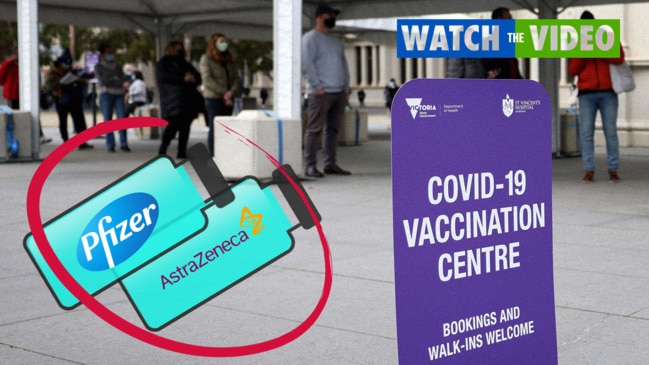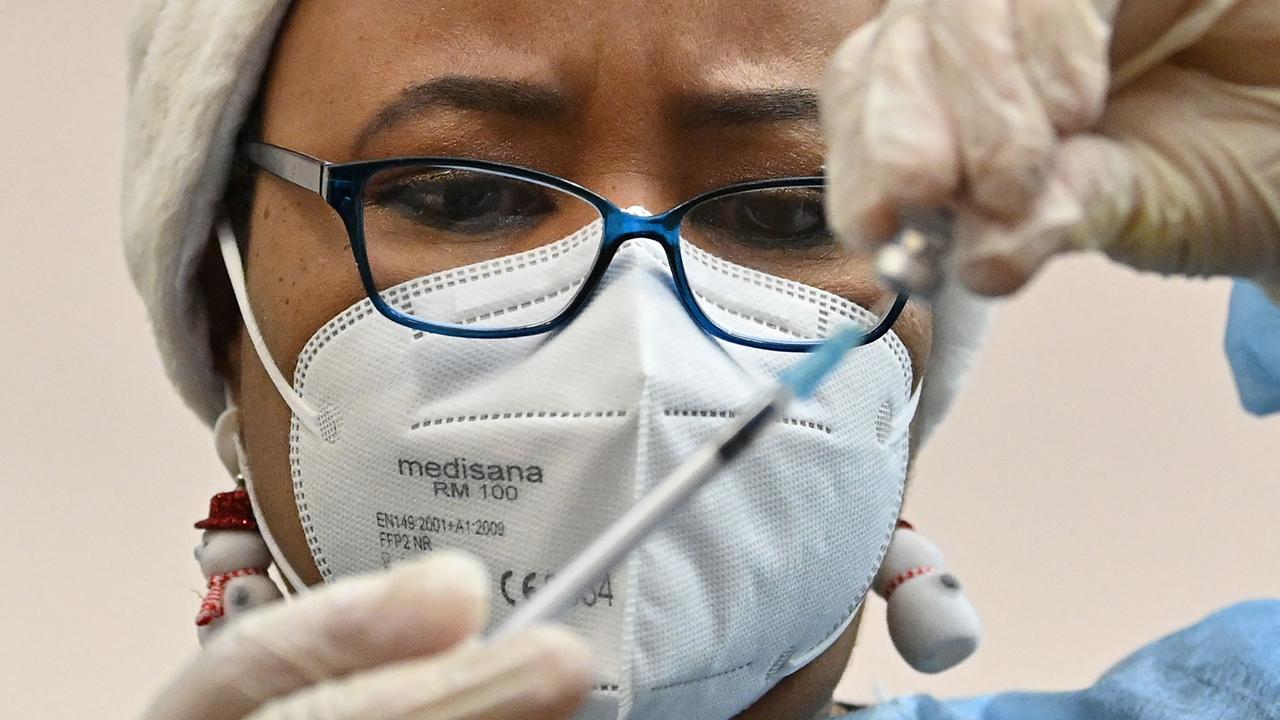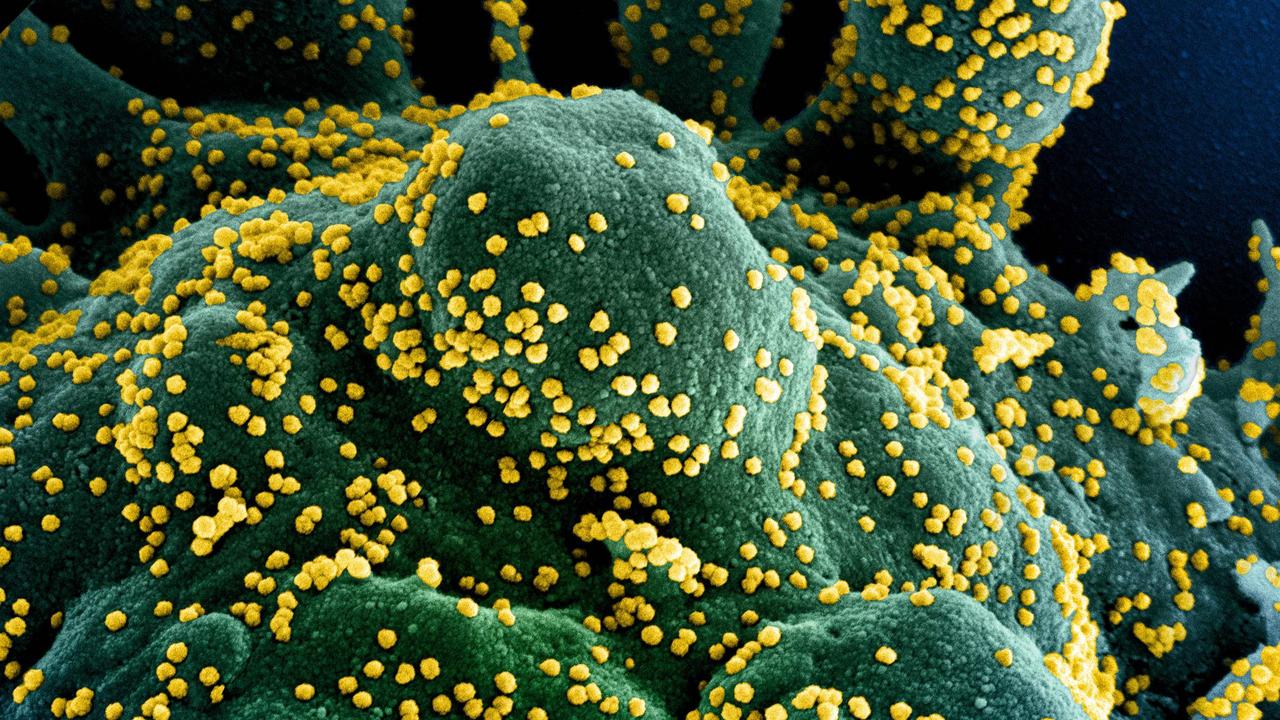Pfizer vaccine gets slightly weaker over time
The effectiveness of the Pfizer Covid-19 vaccine weakens slightly over time, new data has revealed, but remains strong in preventing severe disease.

Newly released data from Pfizer and BioNTech has revealed their Covid-19 jab’s effectiveness weakens slightly over time, but remains strong in preventing severe disease.
For the first two months after inoculation, the vaccine – one of the three Australia has hung its hat on to get us out of the pandemic – has an efficacy rate of about 96 per cent against symptomatic Covid-19, the study, posted online overnight, showed.
It then declined about six per cent every two months after that, falling to 83.7 per cent after six months. Despite this, the vaccine’s efficacy against severe disease held steady at 97 per cent.
Speaking to CNBC’s The Exchange, Pfizer CEO Albert Bourla said they’d “seen also data from Israel that there is a waning of immunity and that starts impacting what used to be what was 100 per cent against hospitalisation”.
“Now, after the six month period, [it] is becoming low 80s and mid-to-high 80s,” Dr Bourla said, adding that this shows there is precedent to a third vaccine dose to boost immunity protection.
RELATED: ‘What a joke’: Fury as teens given Pfizer

“The good news is that we are very, very confident that a third dose, a booster, will take up the immune response to levels that will be enough to protect against the Delta variant.”
He stressed that it’s not uncommon for vaccines to decline in effectiveness over time, though Pfizer plans to formally submit data to US regulators about the benefits of a third Covid vaccine dose by mid-August.
In America, where cases are again on the rise as the highly contagious strain takes hold, both the Centres for Disease Control and Prevention (CDC) and the Food and Drug Administration (FDA) have pushed back against Pfizer’s urging for a third dose.
RELATED: Vaccine bungle: 159 to get third jab
“Americans who have been fully vaccinated do not need a booster shot at this time,” the bodies said in a joint statement earlier this month.
The World Health Organisation (WHO) is also yet to recommend Covid booster shots, with director of immunisation, vaccines and biologicals Kate O’Brien saying in an interview that they are still researching whether it’s needed to increase protection.
“We’re very clear on this, there’s not enough information to provide a recommendation at this point,” Dr O’Brien said in the Q&A, posted to the WHO’s social media accounts.
“Again, this is a very hot topic, and there’s a lot of research going on to be able to provide an evidence-based recommendation.”
Vaccinating against Covid-19 is the only way for Australians to get their normal lives back, but as a nation we’re struggling.
News.com.au’s Our Best Shot campaign answers your questions about the Covid-19 vaccine rollout.
It’s fair to say the vaccine rollout has confused Australians. We’ll cut through the spin and give you clear information so you can make an informed decision.
In Australia, the Federal Government signed a deal with the multinational pharmaceutical company last week, securing 85 million booster shots that will begin to arrive next year.
Of those, 60 million doses can be expected at some point in 2022, while the remaining 25 million are set to hit shores in 2023.
They’ll be offered to Australians fully vaccinated against Covid-19, in a bid to further protect them from any new strains.
“This will ensure individuals, families and communities have certainty about their continued protection against the evolving threat of Covid-19 over the next two years,” Prime Minister Scott Morrison said in a statement announcing the deal.
The Australian Technical Advisory Group on Immunisation (ATAGI) is also yet to recommend additional doses, though, with Federal Health Minister Greg Hunt saying earlier this month: “There’s no final decision as to whether a booster will be required, but we are planning as if a booster will be required.
“At this stage, our best advice is that mRNA and, in particular as well, protein vaccines, would be the ideal candidates for a booster,” Mr Hunt said.




